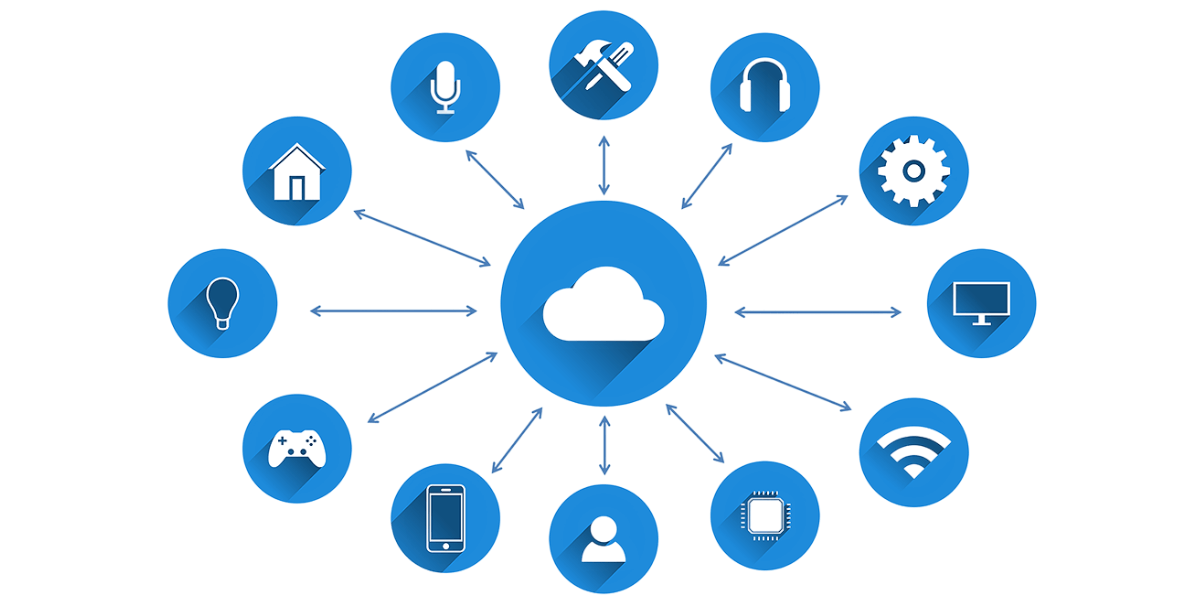Home > Cloud Computing: What Are the Advantages and Disadvantages for Businesses?
With the rapid development of digital technologies, cloud computing has become an essential solution for modern businesses. While this technology promises flexibility, agility, and cost savings, it also presents certain risks. So, what are the real advantages and disadvantages of the cloud for businesses? From cost reduction to data security management, the cloud is transforming the internal operations of organizations. Discover how it can propel your business to new heights or, conversely, pose significant challenges. This article explores the opportunities and challenges of cloud computing to help you make an informed and strategic decision.

Cloud computing has become an indispensable tool for businesses aiming to thrive in today’s digital landscape. By reducing time spent on IT infrastructure maintenance, it enables teams to focus on more strategic and creative tasks. This transition to the cloud represents an opportunity for businesses to rethink their processes and boost efficiency.
With the capability to manage applications and services remotely, cloud computing offers a flexibility that transforms how businesses operate daily. Whether it’s hosting web applications, storing data, or facilitating team collaboration, the cloud provides a robust and adaptable solution.
Cloud service models such as IaaS, PaaS, and SaaS offer solutions tailored to specific business needs, ranging from on-demand infrastructure to comprehensive platforms for application development.
This flexibility allows businesses to seamlessly integrate existing systems and quickly adapt to market changes. As such, cloud computing can become a major asset for any business striving to remain competitive in an ever-evolving commercial environment.
Cloud computing is a technology that enables access to IT resources via the Internet without the need for managing physical infrastructure. This approach offers unparalleled flexibility, allowing businesses to quickly adjust their computing and storage resources to meet their needs. This ability to adapt rapidly is especially valuable in a world where requirements can change overnight.
In addition to flexibility, cloud computing facilitates application hosting and software sharing, enabling more efficient collaboration among users. Businesses pay only for the resources they actually use, which helps avoid unnecessary costs and optimize expenses.
In summary, cloud computing offers a comprehensive solution for modern IT needs, combining efficiency, flexibility, and cost-effectiveness.

Cloud computing offers numerous benefits for businesses, ranging from cost reduction to improved security and compliance. By adopting this technology, companies can not only optimize their operations but also enhance agility and responsiveness.
The following subsections delve deeper into these advantages, highlighting how cloud computing can transform businesses.
One of the main benefits of cloud computing is cost reduction. By eliminating the need to purchase and maintain expensive IT hardware, businesses can achieve substantial savings. Transforming capital expenditures into monthly operating expenses allows for more efficient resource management.
Additionally, the pay-as-you-go model of cloud computing ensures that businesses only pay for the resources they actually use, helping to avoid unnecessary expenses and optimize operational costs.
For small and medium-sized enterprises, outsourcing data management to cloud providers can be a more economical solution than maintaining in-house systems.
Cloud computing significantly enhances business flexibility and scalability. It allows rapid adjustments to storage capacity and user access based on current needs without requiring heavy investments in physical infrastructure. This quick adaptability is critical for responding to market fluctuations and evolving customer demands.
Furthermore, the cloud enables resource management based on usage, facilitating real-time adjustments. Businesses can scale up or down as needed, increasing their agility and responsiveness to opportunities and challenges.

Accessibility and collaboration are major advantages of cloud computing. By facilitating remote work, it allows employees to access cloud applications and infrastructure from anywhere with an Internet connection. Data is accessible everywhere on any device, promoting great flexibility and effective remote work.
Cloud tools, such as management software, enhance communication and collaboration among teams. Employees can collaborate in real-time, access documents and applications on demand, and thereby strengthen team cohesion and efficiency. This collaborative capability is a valuable asset for modern businesses.
Security and compliance are crucial concerns for any business, and cloud computing offers advanced solutions in this area. Cloud service providers incorporate advanced security features, such as data encryption, to protect sensitive information. These measures make unauthorized access difficult, thereby enhancing data security.
However, cloud services also expose businesses to a wide range of attacks, requiring constant vigilance. Additionally, services operated outside the national territory may pose risks of data espionage due to differing legislative frameworks.
To ensure regulatory compliance, businesses can produce independent reports for regulators.
Cloud computing offers robust disaster recovery solutions essential for preventing data loss and ensuring business continuity. Built-in backup and disaster recovery features enable quick data recovery in case of issues. This rapid recovery capability is critical to minimize disruptions and financial losses.
Cloud disaster recovery plans are simple and cost-effective, providing quick access to backup servers in case of failure. These solutions are inherently part of cloud strategies, requiring no major additional investment.

Although cloud computing offers numerous advantages, it also has drawbacks that businesses must consider. These challenges can impact the decision to migrate to the cloud and require careful evaluation.
The following subsections provide a detailed examination of these disadvantages to help you better understand the potential risks of adopting cloud computing.
Vendor lock-in can limit a company’s ability to manage and control its IT infrastructure. Over-reliance on a single cloud provider can create problems in case of contract termination, technical failure, or provider reliability issues. Businesses must be cautious and thoroughly evaluate their options before committing to a single provider.
To mitigate these risks, adopting a multi-cloud strategy is recommended. This approach diversifies dependencies and ensures service continuity, allowing businesses to enjoy the benefits of multiple providers while minimizing associated risks.
Security and data privacy concerns can hinder the adoption of cloud computing. Choosing a U.S.-based provider, for example, may expose businesses to GDPR violations due to U.S. data disclosure laws. Additionally, certain cloud solutions pose risks of data indexing and misuse, potentially compromising sensitive information privacy.
Users must carefully manage cloud data access to ensure its security. A guide by the Federal Data Protection and Information Commissioner provides recommendations for businesses to understand and manage data privacy in the cloud.
By following these guidelines, businesses can better protect their data while enjoying the advantages of cloud computing.

While cloud computing can reduce short-term costs, hidden fees may arise, leading to unexpected long-term expenses. Businesses need to be aware of additional costs associated with the cloud, such as data transfer fees and software updates. These unforeseen costs can encompass various additional services often overlooked by users.
Depending on a company’s needs and growth, the cloud can sometimes become more expensive in the long term compared to internal infrastructure. Therefore, conducting a thorough cost-benefit analysis is crucial before migrating to the cloud, considering all potential associated costs.
Cloud computing relies on a stable Internet connection, which can pose challenges in areas with poor service quality. Here are some major concerns:
These factors must be considered when evaluating cloud computing services.
To minimize these risks, it’s essential to choose a reputable cloud service provider and design an infrastructure for high availability. Taking these precautions ensures reduced service interruptions and continuous, reliable operations.

Cloud deployment models vary and can be tailored to the specific needs of each business. Here are the main types of cloud deployment models:
Each model has its own advantages and disadvantages, and the choice depends on the specific needs of the business.
Companies can select the model that best aligns with their required levels of control and flexibility. These cloud models help businesses adapt their IT resources to their specific needs, providing a tailored solution for every company.
Selecting a cloud service provider should be done carefully to avoid unexpected fees and security issues. Here are some key considerations:
Considering these factors will help you make an informed decision for your cloud needs.
The availability of responsive and accessible customer support is a key factor when choosing a cloud service provider. Cloud service pricing models can vary, so it is essential to choose one that aligns with your business’s budgetary needs.
The certifications and standards of a cloud service provider can also indicate their adherence to industry best practices.

Cloud computing represents a major opportunity for businesses seeking to optimize operations and stay competitive. Benefits such as cost reduction, flexibility, accessibility, and enhanced security are undeniable advantages. However, it is crucial to consider potential drawbacks, such as vendor lock-in, data privacy concerns, and long-term costs.
Ultimately, every company must evaluate its specific needs and priorities before migrating to the cloud. By carefully weighing the pros and cons, businesses can make informed decisions that support their long-term growth and success.
What are the main advantages of cloud computing?
Cloud computing offers major benefits such as flexibility, cost reduction, and increased accessibility, facilitating collaboration. These features make it essential for modern businesses.
What are the main disadvantages of cloud computing?
Key disadvantages of cloud computing include vendor lock-in, data privacy issues, long-term costs, and risks related to Internet connectivity. It is essential to carefully evaluate these aspects before adopting this solution.
What cloud deployment models exist?
The main cloud deployment models include public cloud, private cloud, and hybrid cloud. Each caters to specific needs based on data management and required security levels.
How to choose the right cloud service provider?
To choose the right cloud service provider, evaluate the Service Level Agreements (SLAs), security measures, customer support, and pricing models. A thorough analysis of these criteria will ensure a suitable solution for your needs.
What is disaster recovery in the cloud?
Disaster recovery in the cloud refers to the set of backup and recovery features that ensure effective protection against unexpected incidents. It guarantees continuity of essential operations for businesses.

ITTA is the leader in IT training and project management solutions and services in French-speaking Switzerland.
Our latest posts
Subscribe to the newsletter
Consult our confirmed trainings and sessions

Nous utilisons des cookies afin de vous garantir une expérience de navigation fluide, agréable et entièrement sécurisée sur notre site. Ces cookies nous permettent d’analyser et d’améliorer nos services en continu, afin de mieux répondre à vos attentes.
Monday to Friday
8:30 AM to 6:00 PM
Tel. 058 307 73 00
ITTA
Route des jeunes 35
1227 Carouge, Suisse
Monday to Friday, from 8:30 am to 06:00 pm.